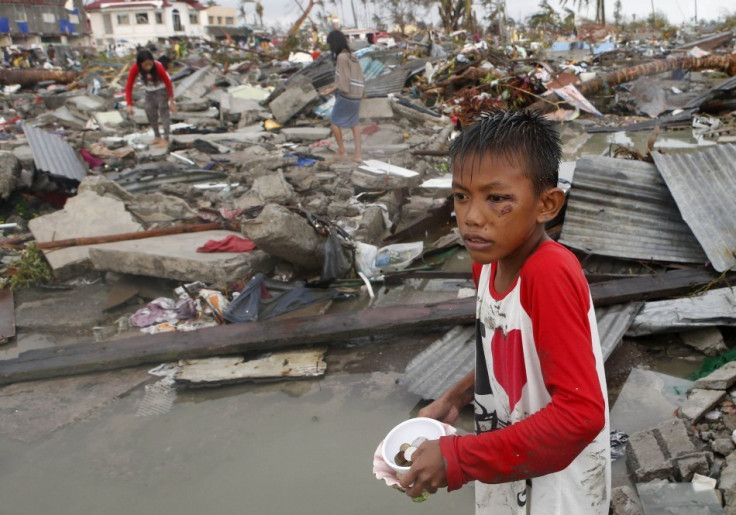Typhoon Haiyan: Lives Lost Because Early Warning System Not in Place

"Millions of lives" could be saved by sending out early warning text message alerts for tsunamis, earthquakes and typhoons.
More lives could be saved if governments were to adopt an early warning wireless technology, RegPoint, the company behind the technology, has told the International Roundtable for Disaster Resilience in Brussels.
The company claimed that "millions of lives" were being put at risk by governments failing to act quickly enough to implement this technology.
"World leaders are failing to adopt advanced early warning systems that could save millions of lives in disaster-prone regions," it said.
Typhoon Haiyan struck the Philippines, flattening entire villages and sweeping ships inland. The Phillippines National Disaster Agency said that more 5,000 people have died with many more still missing.
RegPoint claimed that the implementation of its system ahead of time could have "eased the death toll" from the typhoon.
Typhoon Haiyan brings back painful memories of the 2004 Indian Ocean earthquake and tsunami which affected 14 countries in the region and killed over 230,000 people.
The sytem could also be used to warn tourists travelling in the area at the time of a natual disaster, pointing out that 7,000 tourists, mostly from Europe, lost theie lives during the 2004 tsunami.
Dangerously exposed
"The typhoon in the Philippines reminded us all of Mother Nature's destructive power. Even in a technologically advanced 21st century, we remain dangerously exposed to the worst she has to offer," said RegPoint's founder Sophia Salenius.
"It's up to governments to act, before it is too late. Effective warning systems are available, but politicians must give them their backing if they are to realise their potential."
RegPoint's disaster management system is already in use by the Indian government and was awarded the Aegis Graham Bell International Mobile Health prize for its work.
In order for the system to work, users must register for the geographical areas they are most likely to be found in.
How it works
Data on natural disasters such as tsunamis, earthquakes and typhoons is provided by the Indian National Centre for Ocean Information Services (INCOIS), which monitors the weather and ocean patterns in 17 Southeast Asian countries including Australia and Indonesia using satellite imaging.
RegPoint's solution picks up the data and automatically sends an SMS text message with accurate information about the size, scale and expected time of the disaster to all registered users in the affected areas.
The firm is now working to make the system send SMS warnings automatically to all mobile phones in a geographical area without users needing to register.
© Copyright IBTimes 2025. All rights reserved.






















